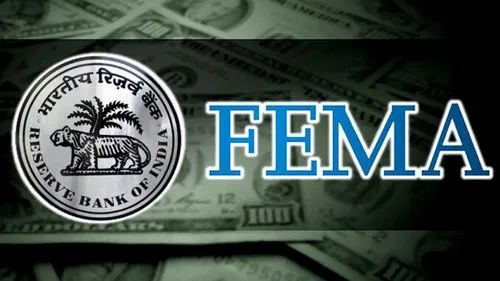RBI / FEMA Compliances
The primary reason for implementing FEMA Compliance was to codify and alter the foreign exchange law in order to facilitate international trade and payments as well as to support the well-managed development of the Indian foreign exchange market. The fact that all foreign exchange offenses in India are now considered civil wrongdoings rather than crimes, as required by FEMA/RBI Compliance, is a remarkable opportunity brought about by FEMA Compliance.
All around India, as well as to all the foreign branches, offices, and agencies that are owned and maintained by an Indian resident, FEMA Compliance is significant and pertinent. In general, the following transactions are subject to FEMA Compliance:
- An Indian resident’s transfer or publication of any foreign security
- Any transfer or publication of securities by an individual residing overseas
- Every branch or agent in India of a resident overseas may transfer or publish any security, domestic or foreign.
- Any foreign exchange borrowing or lending
- Any rupee borrowing or loan between a resident of India and a resident of another country.
- Deposits between a resident of India and a foreigner
- Possession, export, or import of money or currency notes.
- Transfer of real estate outside of India by an Indian resident, excluding a lease of no more than five years.
- A person who does not reside in India may not purchase or transfer immovable property there, with the exception of a lease that is no longer than five years.

The foreign transactions under FEMA Compliance are categorized into two categories –
- Capital account transactions: All capital transactions are included in the capital Account.
- Transactions on a current account. The commerce of commodities and services is included in the current account. Current Account transactions are those that include money moving into and out of a country or countries over the course of a year as a result of trading or providing goods, services, and income. In addition to the aforementioned, FEMA Compliance expressly forbids several trades.
How SalahKaro Helps in FEMA & RBI Compliance

Any individual who conducts the transactions required by FEMA Compliance is required to comply with specific requirements, including reporting. These requirements include Form FC GPR, the annual performance report, and the Foreign Liabilities and Assets Return (FLA Return).
Our team of experts continually monitors the regulatory landscape in India and helps our clients quickly comply with FEMA requirements. We mostly provide the following services:
- A warning regarding the establishment of a foreign company’s presence in India, whether it be through a liaison office, project office, branch office, etc., as well as the preparation of an application to the Reserve Bank of India (the “RBI”) in the format specified and ongoing communication with the RBI to secure approval.
- Advice regarding the records that foreign businesses with presences in India must keep and the RBI compliance they must complete.
- Help with timely reporting to the RBI of transactions involving the sale or acquisition of securities, the issue of shares to non-residents, the sending of money outside of India, etc.
- advice regarding the necessary compliances to be made and the establishment of Indian companies’ presence outside of India.
- representation in front of the RBI Compliance for compounding of FEMA Compliance crimes.
FREQUENTLY ASKED QUESTIONS
The RBI is the primary authority for FEMA compliances. However, depending upon the transactions, the person undertaking transactions should also ensure compliance with income tax law, indirect tax laws, companies act as well as SEBI laws.
Following are the major reporting requirements under FEMA:
- Form FC-GPR: Applicable when a company is in receipt of foreign investment against allotment of shares.
- Form FC-TRS: Applicable in case of share transfer undertaken by shareholders resident outside India.
- ECB: Applicable for external commercial borrowings
- Form APR: Form APR shall be filed w.r.t. wholly-owned subsidiaries and joint ventures outside India
- Form SDS: Applicable in case of further investments made by joint ventures or wholly owned subsidiaries.
- FLA Return: Foreign Liabilities and Asset (FLA) return shall be mandatory for the companies that have received foreign investments.
- Form ODI: Applicable in case of investments in joint ventures or wholly owned subsidiaries outside India.

